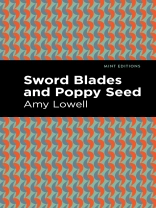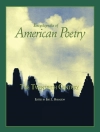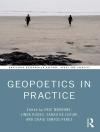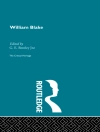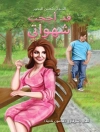Sword Blades and Poppy Seed (1914) is a poetry collection by Amy Lowell. Published at the beginning of her career as an influential imagist devoted to classical poetic themes and forms, Sword Blades and Poppy Seed is an agile and promising work from a pioneering poet of the early twentieth century. The title poem of Lowell’s collection is an imaginative voyage into the mind of a poet struggling with writer’s block, who scans the city for “the slightest tinge of gold” to no avail: “From time to time I wrote a word / Which lines and circles overscored. / My table seemed a graveyard, full / Of coffins waiting burial.” Disgusted with her inability to write anything meaningful, she takes the streets, encountering a strange old man—part poppy dealer, part devil—who offers success in exchange for the poet’s soul. Personal and public, keenly engaged with tradition—the Faustian legend, in particular—while maintaining her own private voice, Lowell’s poems are an essential contribution to one of humanity’s oldest art forms. Sword Blades and Poppy Seed is a vibrant collection from an emerging poet who would come to define the imagist movement throughout her storied career. This edition Amy Lowell’s Sword Blades and Poppy Seed is a classic work of American poetry reimagined for modern readers.
Since our inception in 2020, Mint Editions has kept sustainability and innovation at the forefront of our mission. Each and every Mint Edition title gets a fresh, professionally typeset manuscript and a dazzling new cover, all while maintaining the integrity of the original book.
With thousands of titles in our collection, we aim to spotlight diverse public domain works to help them find modern audiences. Mint Editions celebrates a breadth of literary works, curated from both canonical and overlooked classics from writers around the globe.
Über den Autor
Jack London (1876-1916) was an American novelist and journalist. Born in San Francisco to Florence Wellman, a spiritualist, and William Chaney, an astrologer, London was raised by his mother and her husband, John London, in Oakland. An intelligent boy, Jack went on to study at the University of California, Berkeley before leaving school to join the Klondike Gold Rush. His experiences in the Klondike—hard labor, life in a hostile environment, and bouts of scurvy—both shaped his sociopolitical outlook and served as powerful material for such works as “To Build a Fire” (1902), The Call of the Wild (1903), and White Fang (1906). When he returned to Oakland, London embarked on a career as a professional writer, finding success with novels and short fiction. In 1904, London worked as a war correspondent covering the Russo-Japanese War and was arrested several times by Japanese authorities. Upon returning to California, he joined the famous Bohemian Club, befriending such members as Ambrose Bierce and John Muir. London married Charmian Kittredge in 1905, the same year he purchased the thousand-acre Beauty Ranch in Sonoma County, California. London, who suffered from numerous illnesses throughout his life, died on his ranch at the age of 40. A lifelong advocate for socialism and animal rights, London is recognized as a pioneer of science fiction and an important figure in twentieth century American literature.
